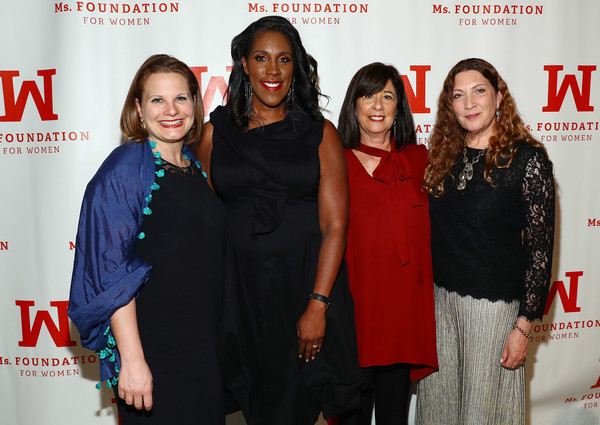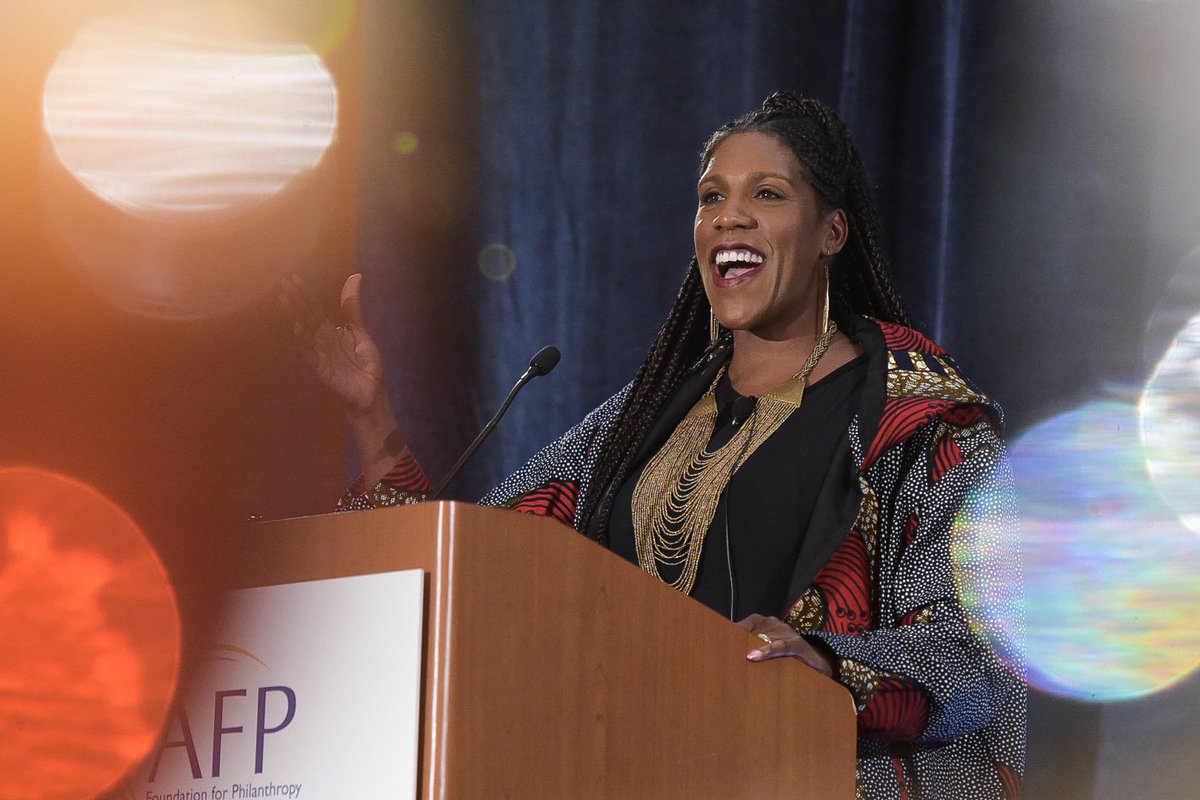Since 2014, Teresa C. Younger is the President and CEO of the Ms. Foundation for Women, one of the oldest and first women’s foundations. Among its activities, one of the most notable multimedia campaign was #MyFeminismIs which sparked a national conversation on feminism. The Ms. Foundation for Women also funded a report on sexual abuse in prison and funded a commitment to create pathways to economic opportunity for low-income women and girl up to $100 million.
Ms. Teresa C. Younger has spent 20 years on the frontline of some of the most critical battles which affected both the general population and women. She is a strong leader, an activist and appears as a major strategist on the international scene thanks to her contributions in the nonprofit and social justice arenas. This was reported in Big Impact: Insights & Stories from America’s Non-Profit Leaders, a book by Linda C. Hartley and Vivien Hoexter (published in 2017) about nonprofit leaders who have found solutions to some of our greatest and most intractable societal problems. She featured in the Women’s Leadership Online Summit (September 2018)and she has been recognized by The Council on World Affairs, Aspen Institute, Princeton University, Harvard University, and NetRoots Nation.
In 2015, Teresa C. Younger has been chosen to become a Dream Keeper by Planned Parenthood Federation of America and one year after, she appeared as one of the “50 Most Powerful Women in Philanthropy” in the list made by Inside Philanthropy.

In 2014, you became the new president of the Ms. Foundation for Women, an organization that helped to trail blaze women-based philanthropic pursuits— what does it mean to you to lead such an iconic foundation? What advice would you give to women who want to pursue leadership roles?
Teresa C. Younger: It is an honor and a privilege to lead an organization that has, for over 45 years, changed the lives of women. The Ms. Foundation is the first and oldest national public women’s foundation that builds on women’s collective power by investing in and strengthening the capacity of women-led movements to advance gender equity for all.
My advice to women pursuing any role is to be passionate and fearless. I challenge you — like I challenge myself — to be the kind of woman that when your feet hit the ground in the morning the devil says, “Oh shit, she’s up.”
A major aim of yours, both as the foundation’s President and philanthropist, is to diversify the philanthropic world— how have you seen the philanthropic ecosystem evolve throughout the years and how have you worked to enact that? Why is it important for foundations to be intersectional?
TY: In centering women and girls of color as a point of inclusion, the Ms. Foundation is speaking truth to power. We believe philanthropic spaces should be guided by those most impacted by the work and, as such, we focus on those who live at the intersection of gender and race. Right now, only 5-7% of all foundation funding goes to women’s and girls’ initiatives, with even less going to women and girls of color. That is why we are unapologetic in our call to action: philanthropy and philanthropists must invest more in women and girls of color.

You have led many initiatives addressing violence against women, yet, the pain of women and girls of color have been historically ignored in the United States, what does it mean to you to have such an influential platform?
TY: My platform allows me to see firsthand the critical work done by women and girls on the grassroots level. Our foundation trusts women to have the answers to help and heal their communities, so it is incumbent on us to amplify their voices and vision.
This country was not created for women and girls, particularly those of color. Our grantee partners, like Girls for Gender Equity and Every Black Girl, work to undo the institutional and systemic violence that affects us all. Together, our voices are key to creating a safe and just world where power and possibility are not limited.
Women and girls of color also face inequitable health care— you have been a champion of health and safety for women, why is it such an imperative focus for you? As the current administration legislates women’s bodies, what are the policies you have chosen to tackle or support?
TY: When it comes to one’s health, this is a prime case of the personal being political. Women’s bodily autonomy is non-negotiable. In almost every aspect of reproductive health, women of color face poorer outcomes than white women. We support policies that guarantee reproductive justice and quality healthcare, regardless of race, income, gender or sexual identity.
The issues we focus on — safety, health and economic justice — are interconnected, and many of our grantee partners, including El Pueblo, Inc. in North Carolina, Kentucky Health Justice Network, SisterSong and SPARK Reproductive Justice NOW in Georgia, and the National Latina Institute for Reproductive Health, put their bodies on the line every day to protect reproductive health and justice for all.
EDITOR’S NOTE: The opinions expressed here by Impakter.com columnists are their own, not those of Impakter.com. “Shape Your Future” Video cover with: Teresa C. Younger, President and CEO of the Ms. Foundation for Women – Edited by Impakter.com








